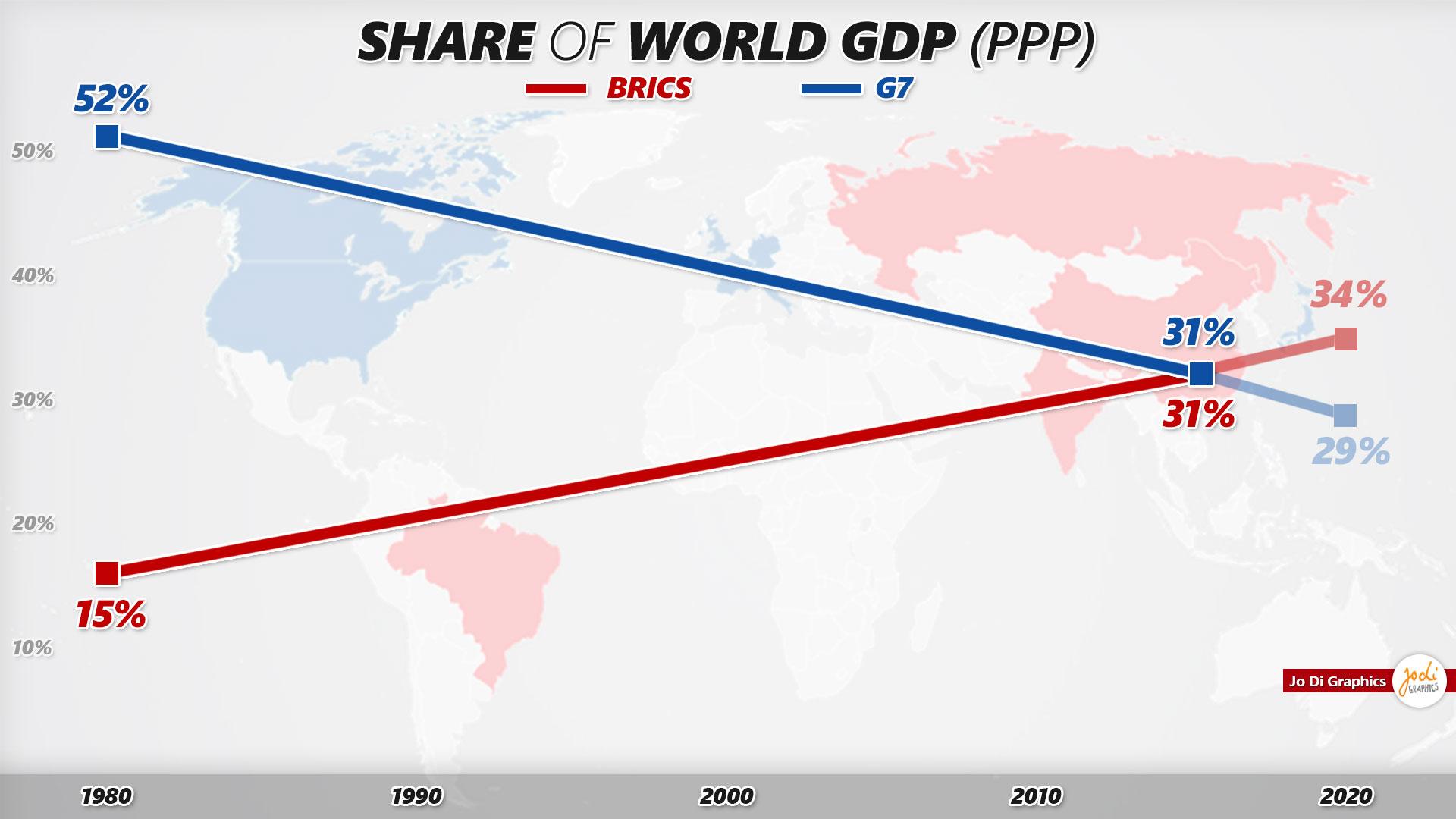According to Megh Updates, a prominent online information platform based in India, the BRICS countries have now surpassed the G7 countries in terms of their share of the world's PPP GDP. This marks a significant shift in the global economic landscape, and Megh Updates predicts that this trend is likely to continue in the future.
The BRICS is a group of countries that includes Brazil, Russia, India, China, and South Africa, whereas the G7 comprises Canada, France, Germany, Italy, Japan, the United Kingdom, the United States, and the European Union.
Recently, the BRICS has been expanding, with Bangladesh, Egypt, and the UAE joining the BRICS New Development Bank, and several other countries likely to follow suit. Additionally, Mexico, which was previously part of the North American free trade bloc NAFTA (now replaced by the Canada-United States-Mexico Agreement), is set to join the BRICS in the near future. This move is expected to signal a growing concern among global economies, including those on America's border, about the US' ability to trade on fair and equal terms.

Currently, the BRICS countries contribute 31.5% of global GDP, while the G7 share has fallen to 30%. The BRICS is predicted to account for more than 50% of global GDP by 2030, with the proposed enlargement likely to accelerate this trend. In fact, in 2015, China's GDP surpassed that of the United States in purchasing parity terms, highlighting the growing economic strength of the BRICS countries.
These developments are expected to bring about significant global changes, as Chinese President Xi Jinping highlighted in his departing remarks to Russian President Vladimir Putin after their recent summit. The main issue is that the BRICS countries, including the potential new members, are increasingly aligned with China and Russia, while the influence of the G7, including the US and EU, is declining.
Several factors have contributed to this trend, including a general lack of trust in US foreign policy, a desire to create an alternative trade bloc to the G7 as a way to mitigate against sanctions, a perception of EU overreach in global markets, and historical animosity towards European legacies from the colonial era.
These developments are also likely to accelerate the ongoing shift away from a unilateral global order led by the US towards a multipolar one, led by major BRICS economies. With Chinese President Xi Jinping's recent visit to Russia and Brazilian President Luiz Inácio Lula da Silva scheduled to visit Beijing soon, the BRICS is undergoing significant changes in terms of its importance and global reach.
Starting from now, the BRICS is likely to intensify their calls for reforms in multiple global institutions where they believe they are not adequately represented. These institutions include the United Nations' structure, shareholding arrangements in the World Bank and IMF, and strengthening the membership and renewal processes for global bodies like the WTO and WHO. Although progress may be slow initially, it is expected that the BRICS will exert increasing pressure on the G7 to cede control.
This shift in global dynamics is likely to create a more polarized geopolitical landscape in the coming decade. Without finding ways to accommodate both China, Russia, and the emerging global order that is no longer Western-centric, there is a risk of global divisions occurring.



















